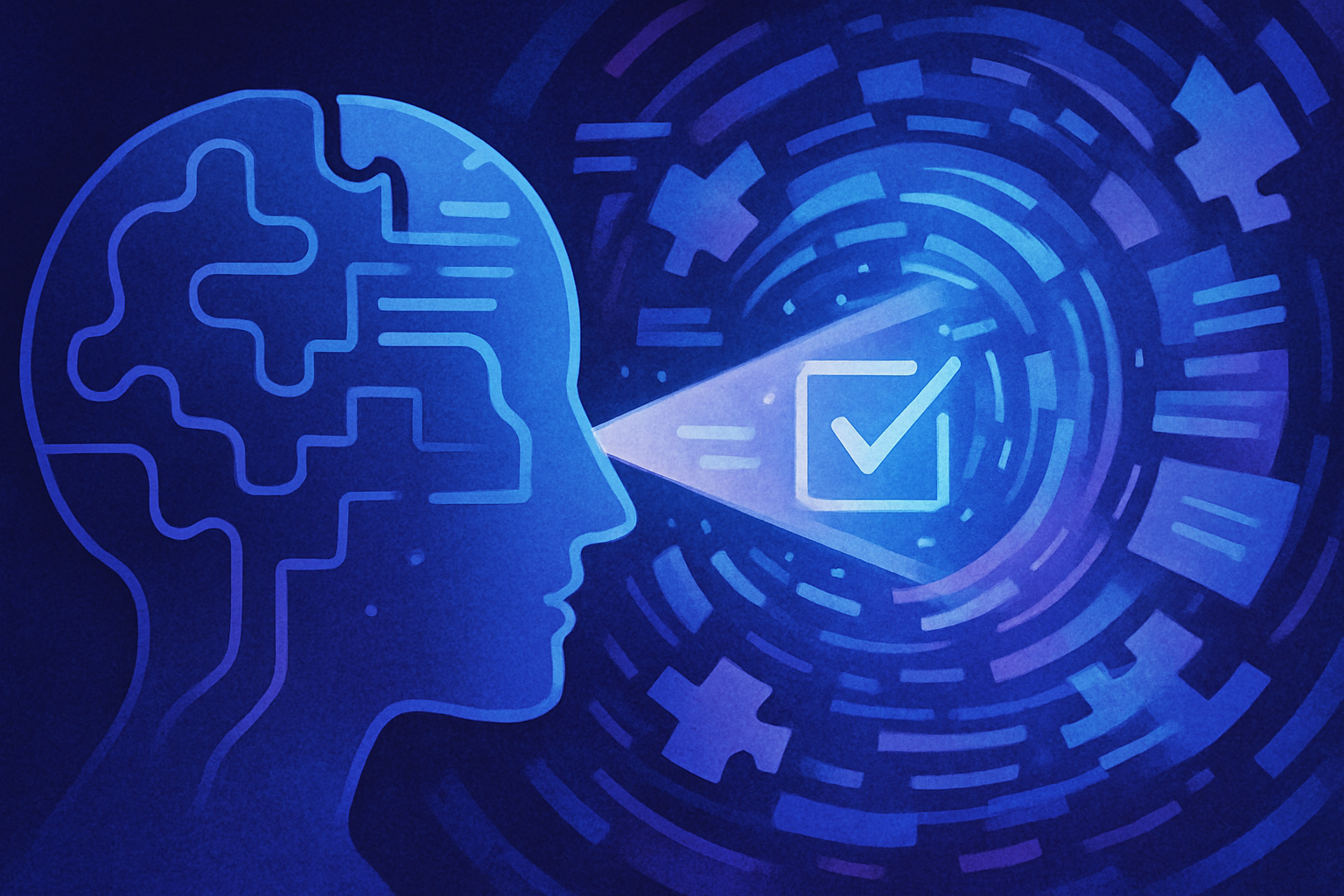AI vs. Conspiracy Theories: Can AI Unravel the Truth?
Can AI help us debunk conspiracy theories? Explore the potential and pitfalls of using AI to analyze misinformation, with practical examples and ethical considerations.

AI vs. Conspiracy Theories: Can AI Unravel the Truth?
In a world awash with information, distinguishing fact from fiction can feel like an impossible task. Conspiracy theories, often captivating and sometimes harmful, thrive in this environment. But what happens when we introduce Artificial Intelligence (AI) into the mix? Can AI help us debunk conspiracy theories, or does it risk fueling the fire?
Understanding the Appeal of Conspiracy Theories
Conspiracy theories offer simple narratives in a complex world. They provide a sense of control, belonging, and understanding, especially during times of uncertainty or crisis. It's important to understand why people are drawn to these theories before attempting to use AI to analyze them.
AI's Role in Analyzing Conspiracy Theories
AI offers several potential tools for analyzing conspiracy theories:
- Natural Language Processing (NLP): NLP can analyze the language used in conspiracy theories, identifying patterns, sentiment, and persuasive techniques. It can also track the spread of these theories online.
- Network Analysis: AI can map the relationships between individuals and groups who promote or believe in conspiracy theories, revealing influential nodes and potential sources of misinformation.
- Fact-Checking and Source Verification: AI can be used to automatically verify claims made in conspiracy theories by cross-referencing them with credible sources of information.
- Image and Video Analysis: AI can detect manipulated images or videos used to support conspiracy theories.
Examples of AI Debunking Conspiracy Theories
Several projects are exploring how AI can be used to combat misinformation. For example, AI algorithms can analyze news articles and social media posts to identify potential instances of fabricated or misleading information, providing users with context and alternative perspectives.
The Risks of Using AI to Tackle Conspiracy Theories
While AI offers exciting possibilities, it's crucial to be aware of the potential pitfalls:
- Bias: AI algorithms are trained on data, and if that data contains biases, the AI will inherit them. This could lead to AI unfairly targeting or misinterpreting certain viewpoints.
- The Black Box Problem: Many AI algorithms are complex and opaque, making it difficult to understand how they arrive at their conclusions. This lack of transparency can erode trust and fuel suspicion.
- Reinforcement of Beliefs: Presenting someone with information that contradicts their beliefs can sometimes backfire, leading them to double down on their convictions. This is known as the backfire effect.
- AI-Generated Conspiracy Theories: Ironically, AI could be used to create even more convincing and sophisticated conspiracy theories. Deepfakes, for instance, can be used to fabricate evidence and manipulate public opinion.
Ethical Considerations
Using AI to analyze and debunk conspiracy theories raises important ethical questions:
- Censorship vs. Free Speech: How do we balance the need to combat misinformation with the right to freedom of expression?
- Transparency and Accountability: How do we ensure that AI algorithms are transparent and accountable for their decisions?
- Privacy: How do we protect the privacy of individuals who may be associated with conspiracy theories?
Automation: Streamlining the Fight Against Misinformation
One of the most promising applications of AI in debunking conspiracy theories is automating tasks that are traditionally time-consuming and resource-intensive. This is where platforms like Make.com come into play.
Imagine this: An AI algorithm detects a surge in a particular conspiracy theory on social media. Using Make.com, you can automate a workflow that:
- Triggers when the AI detects a pre-defined threshold of mentions for a specific keyword or phrase.
- Automatically gathers relevant data from social media platforms, news articles, and fact-checking websites.
- Summarizes the core claims of the conspiracy theory and presents them to a human fact-checker.
- Publishes a debunking article on a blog or social media platform.
This kind of automation allows for a rapid and scalable response to emerging conspiracy theories, helping to prevent their spread. You can connect various apps and AI models to create a complex workflow using Make.com.
The Future of AI and Conspiracy Theories
The relationship between AI and conspiracy theories is complex and evolving. AI has the potential to be a powerful tool for debunking misinformation, but it also carries significant risks. Moving forward, it's crucial to proceed with caution, prioritizing ethical considerations, transparency, and a nuanced understanding of the psychology of belief.
Ultimately, the fight against conspiracy theories requires a multi-faceted approach that combines AI with critical thinking, media literacy, and a healthy dose of skepticism.
Frequently Asked Questions
Can AI accurately debunk all conspiracy theories?
No. AI is a tool, and its effectiveness depends on the quality of data it's trained on and the complexity of the conspiracy theory. It's most helpful in identifying patterns, verifying facts, and automating analysis but requires human oversight.
How can a beginner use AI tools for fact-checking and verifying claims?
Start with AI-powered search engines or fact-checking websites. Explore tools that highlight potential misinformation and provide alternative perspectives. Remember to critically evaluate the AI's findings and consult multiple sources.
Is it easy to automate tasks like social listening and content analysis with platforms like Make.com?
Yes, platforms like Make.com are designed to be user-friendly, even for beginners. They offer pre-built templates and a visual interface to connect different apps and automate workflows without needing coding knowledge.
What are the biggest ethical concerns when using AI to combat conspiracy theories?
The biggest concerns include bias in AI algorithms, potential censorship of opinions, lack of transparency in how AI arrives at conclusions, and the risk of reinforcing existing beliefs rather than changing them.
Affiliate Disclosure: Some of the links on this site are affiliate links. I earn a small commission if you make a purchase through them—at no extra cost to you. Thank you for your support!